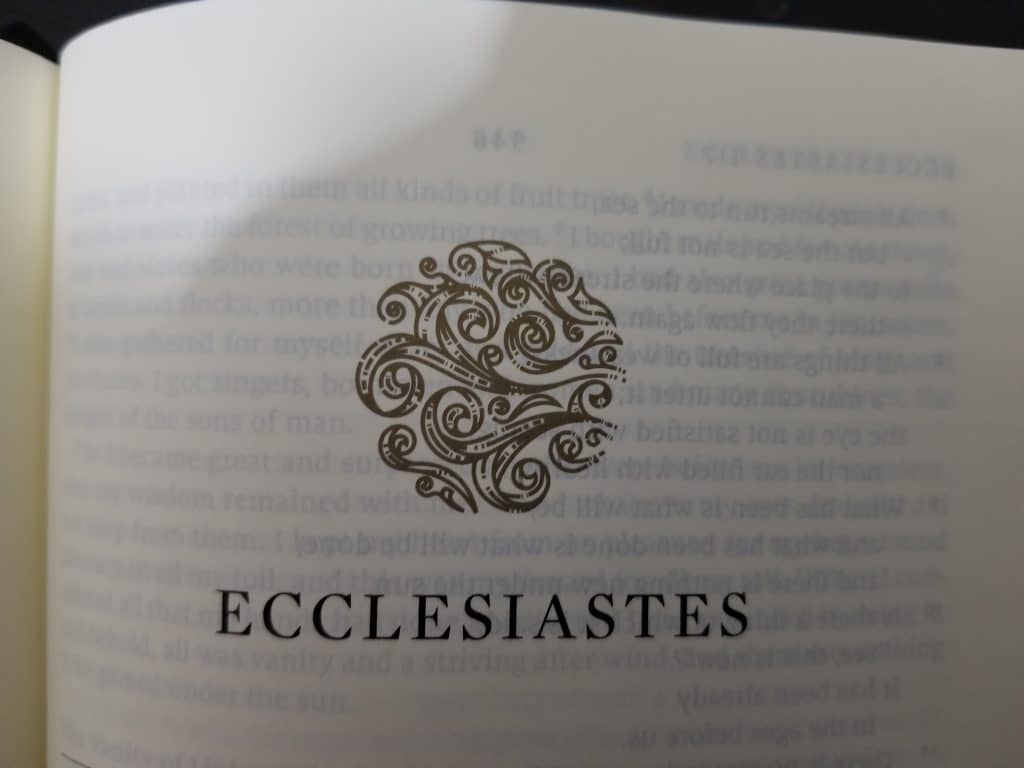⏱️ Estimated Reading Time: 4 min read
Work is a good gift from the Lord. In the order of creation, we see that it is instituted before the Fall. In Genesis 1, the Lord instructs Adam to “be fruitful and multiply and fill the earth and subdue it and have dominion over the fish of the sea and over the birds of the heavens and over every living thing that moves on the earth” (Genesis 1:28, ESV). Work was part of God’s original design for human flourishing. It is through this gift that the world and society makes progress. All of the technological advances throughout history are part of God’s common grace by the gift of work. Yet, when work becomes the ultimate objective, it ceases to be the blessing that the Lord intended it to be. This is what Solomon experienced in his endeavor to find fulfillment as recorded in the second chapter of Ecclesiastes.
After seeking fulfillment in pleasure and wisdom, Solomon turns to his work. It doesn’t take long, however, for his attitude towards work to sour. His first statement regarding work in this section is that he “hated all my toil in which I toil under the sun” (Ecclesiastes 2:18). Eventually, his hatred turns to despair (Ecclesiastes 2:20). The reason he gives for hating his toil is that he must leave it to someone that will come after him. For Solomon, it was vanity not only to work but to leave his inheritance to someone that would not use it wisely. This practice seems peculiar to western individualists. Many in contemporary society do not consider their posterity, in regards to leaving an inheritance or legacy. What matters most is the here and now. For many folks, wealth is not defined by how much can be saved and passed down to the next generation, but how much can borrowed to make life better now. For people in the Ancient Near East, however, it was crucial to pass on land and wealth to the next generation. It was especially important for Solomon to pass on an inheritance because he was the king. He had to propagate his throne because it was through this heritage that the promised Messiah would come.
The account recorded in 1 Kings 12-14 shows that Solomon’s worries were not misplaced. His son Rehoboam was not wise regarding the inheritance left by Solomon. He rejected the advice of his father’s counselors and did what was right in his own eyes. First Kings records these words, “so Israel has been in rebellion against the house of David to this day” (1 Kings 12:19, ESV). It is not long after that when the kingdom divides into the Northern and Southern kingdoms, with Jeroboam taking the throne of Israel. The work that Solomon did to lead the nation of Israel to worship the one true God, through the building of the temple and expanding the kingdom was undone in one generation. This also is vanity.
After coming up empty handed in his pursuit for pleasure, Solomon turns to the only thing that can make him happy, knowing God. In Ecclesiastes 2:24, he transitions in tone by stating, “there is nothing better for a person than that he should eat and drink and find enjoyment in his toil” (ESV). Instead of saying “this also is vanity” he makes a remarkable statement, “this also, I saw, is from the hand of God, for apart from him who can eat or who can have enjoyment?” (Ecclesiastes 2:24-25). This statement hits at the heart of the book of Ecclesiastes. In his previous pursuits, Solomon had missed the point. He had been pursuing pleasure though his possessions and experiences. He discovers that he had it all backward. Notice, however, Solomon doesn’t state that he had to forgo temporal pleasure in order to find fulfillment. Instead, he must change the object of his worship. He must seek first the Creator. It was through pursuing God that he found enjoyment in creation.
This is what Jesus stated in the Sermon on the Mount, “seek first the kingdom of God and his righteousness, and all these things will be added to you” (Matthew 6:33, ESV). Jesus’ statement does not promise what the prosperity preachers promise, that trusting God will bring health and wealth. Instead, this promise from Jesus is that when we seek God first, he will provide everything we need. We can find satisfaction in what we have through Him. . Only in Christ alone is their hope, life, and joy, both now and always. This type of life is countercultural. Yet, it is the only way to find joy both in this life and in eternity. Trusting in Jesus is not striving after the wind.




